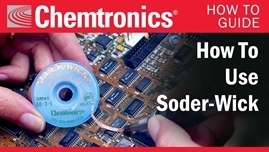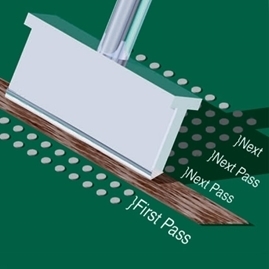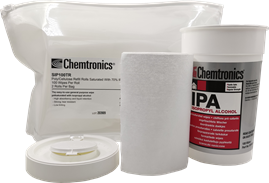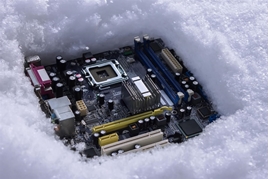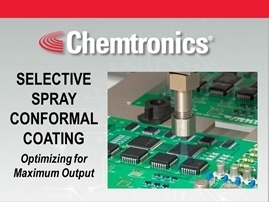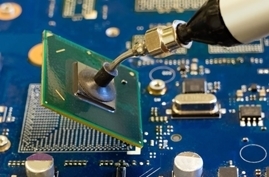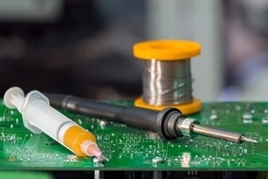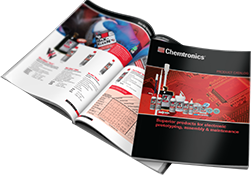
Soder-Wick User's Guide
Wick, Solder Wick, Desoldering Wick, Solder Braid, Desoldering Braid. All of these names refer to the same thing. It is a method of removing unwanted solder using flux and braided copper wire. It is commonly used to aid in removing faulty...
Read This Post
Desoldering Wick Application Guide
Solder wick, desoldering braid, or just “wick” are all names for a copper braid that is used to absorb solder. It is generally coated with flux, so when heated, solder is melted, drawn up, and retained using a combination of wetting...
Read This Post
Alcohol Wipes for Both Everyday Cleaning and Critical Applications
For many organizations, presaturated wipes are the ideal mix of form and function. Isopropyl alcohol (IPA) wipes are commonly used for degreasing, cleaning off fingerprints, removing flux residues, and even disinfecting hard surfaces. Alcohol...
Read This Post
The Dreaded White Residues: Why They Form & What To Do About Them
The appearance of white residues, on circuit boards, is a recurring problem in PCB assembly, and generates many questions and complaints for the Tech Support hotline. When contamination is found on the board after the cleaning step, the customer...
Read This Post
Webinar: Optimizing Selective Spray Conformal Coating for Maximum Output
Speakers: Pierce Pillon – Senior Field Engineer, ITW Contamination Control Electronics Kevin Pawlowski – Application Specialist, ITW Contamination Control Electronics Jon Urquhart - Director - Global Applications Engineering, PVA...
Read This Post
How to Identify and Solve Thermal Stress Issues in Solder Joints
Modern electronics assemblies are more often exposed to hard temperature conditions e.g., power supplies in airborne radars. Repeated thermal cycling induce thermal contractions and expansions in these electronics assemblies including the substrate...
Read This Post
Railway Maintenance of Electrical and Electronic Systems in Trains
Being environmentally friendly, electrical railways have replaced conventional diesel trains in most developed countries. Electric trains emit 20-35% less carbon than diesel trains. In the United States, railways deliver five million tons of...
Read This Post
Cleanroom Compatibility of Chemtronics Duster, ESD Products & Aerosols
From time to time, we receive inquiries in Technical Support asking if a particular Chemtronics product is cleanroom grade or cleanroom compatible. Usually this question arises with regard to our duster products, but sometimes also involves...
Read This Post
Cleanroom Compatibility of Chemtronics Products
From time to time, we get inquiries in Technical Support, asking if a particular Chemtronics product is cleanroom grade or cleanroom compatible. Usually this question arises with regard to our duster products, but sometimes also involves our...
Read This Post
Essential Guide to Flux for Soldering Electronics
When joining two metals in a soldering process, like used in PCB assembly, flux is required to achieve a true metallurgic bond. That ensures the solder joint doesn’t crack or come loose even with the day-to-day wear-and-tear. This article...
Read This Post

